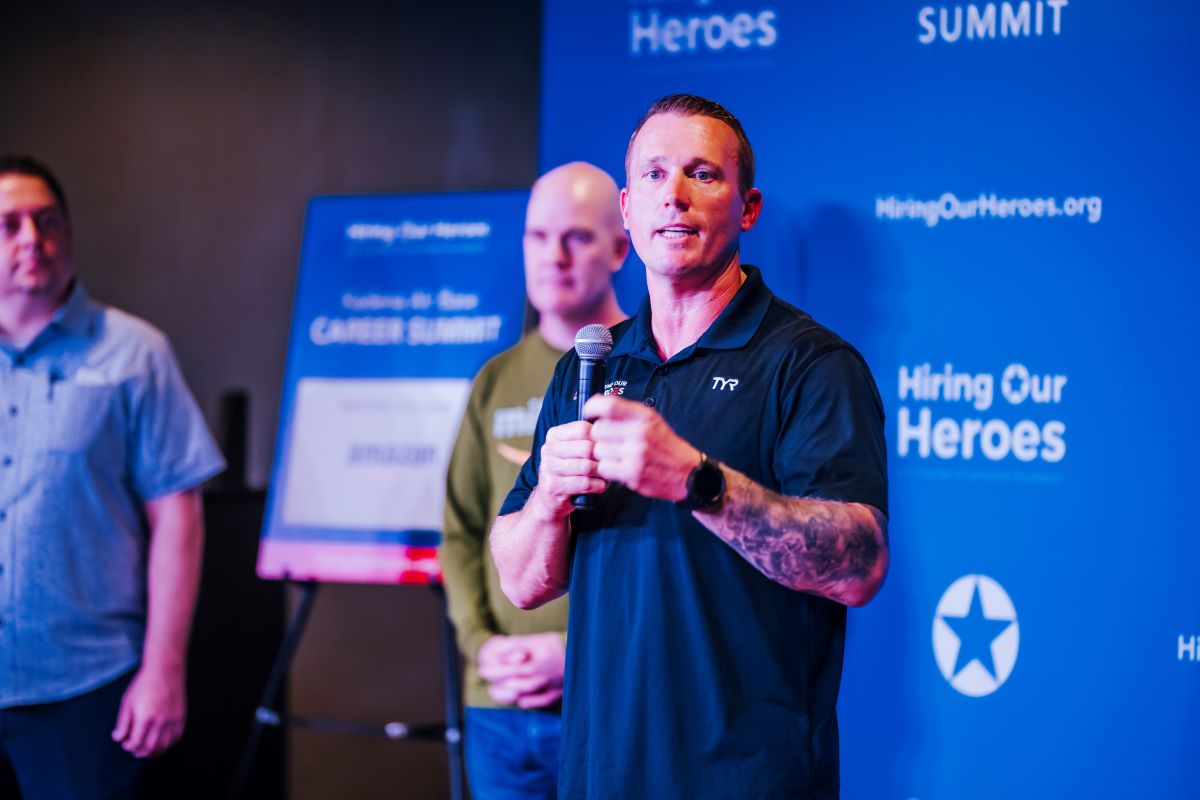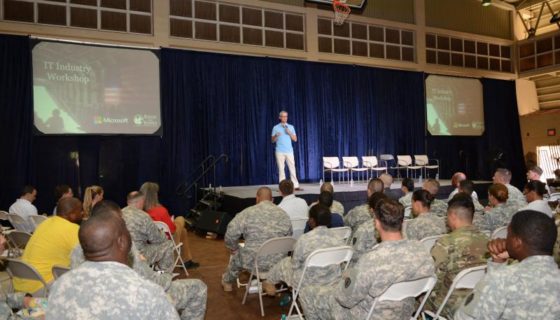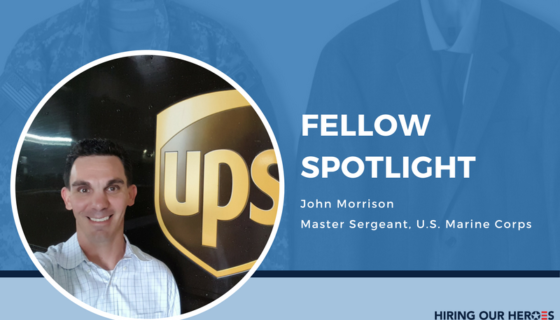Face the Unknown With Confidence: Dakota Meyer Shares His Tips for a Smooth Military Transition

by Dakota Meyer
Nearly 12 years ago, I took a leap of faith and launched Dash Strategies, a full-service firm applying tactical solutions to public-private partnerships, government contracts, and community issues. Today, it’s a source of pride to me that my company is a thriving, successful business.
If Dash Strategies was all you knew about my transition from the military to the civilian world, you would assume that my personal transition story was a charmed one, an easy road to success.
But as any business owner can tell you, no small business succeeds without a tremendous amount of blood, sweat, and hard work. And as many veterans will tell you, the transition from serving your country to finding the right civilian opportunity can be a challenge in the best of circumstances.
As the saying goes, hindsight is 20/20. It’s easy to look back and see how the choices I made in the months leading up to my transition (and in the following months) led me to where I am today. However, the truth is that there are things I wish I had known before my transition. If I had, I believe my transition would have been a lot smoother.
Learn from my mistakes and follow these three tips for a smooth military transition.
Think of Your Military Transition as Your Personal Mission
If you’re coming up on the end of your military career, you’re likely considering what you’ll do next. As I approached both the end of my enlistment term and my 22nd birthday though, I wasn’t thinking about what I’d do after the Corps. Transition seemed far off — until it wasn’t. What I didn’t realize was that everyone in the military should be planning for transition, because ultimately, we all transition.
It can help to think of your transition as your personal mission, one that you’ll need to prepare for, just like any other mission.
Think of your transition as your personal mission, one that you’ll need to prepare for, just like any other mission.
Dakota Meyer, Medal of Honor recipient
Start with your objective. What career field or specific job do you want to pursue? Once you know that, you can work backwards to find what certifications, schooling, or additional training you’ll need to get there, and how and when you’ll be able to accomplish those.
The GI Bill can be helpful but keep this in mind: the GI Bill can either be your jet engine or your parachute. It can propel you forward into a whole new opportunity, or it can slow your descent as you settle back into your current position. Use it wisely.
Explain Your Personal Brand to Employers
A major part of formulating your transition plan and post-military career is defining your personal brand — your value to a potential employer. Some of that value is rooted in the hard skills you learned as part of your military occupational specialty (MOS), but don’t limit yourself to only the obvious skills.
In the Marine Corps, I was designated a 0317, the USMC code for sniper. However, not too many civilian employers were looking to hire a sniper.
Once I learned to focus on the full range of my skills — things like detail-oriented mission planning or leading a team — I was better prepared to talk to employers about how I would be an asset to their team.
Realizing how important it is for transitioning service members and veterans to communicate a personal brand led me to partner with Toyota and the U.S. Chamber of Commerce Foundation’s Hiring Our Heroes on ResumeEngine.org. It’s a free tool that helps you talk about your military service in a language that’s familiar to recruiters and hiring managers.
Step Outside of Your Comfort Zone
About a year after my transition out of the military, and a few months before I started my first company, I struggled to find my place in the civilian employment world. So, I took a job pouring concrete. It was different than the work I’d done in the Marines. But on the job site, I quickly realized my project management and leadership experience were assets to my employer. And although it seemed like a career detour at the time, I found that being part of team again, improving the landscape near my hometown, was fulfilling work.
Two years later, I launched my first company. Since then, my Own the Dash business ventures have expanded to include Dash IV, Dash Labs, DM Tactical, and Flipside Canvas. Just last year, I added the electrolyte mix Dash Hydrate to my suite of companies.
None of my professional success would have come to fruition if I hadn’t been willing to try something outside of my comfort zone.
A willingness to venture outside of a comfort zone, to confront the unknown, is essential to a successful transition.
In the military, we’re not afraid to face the unknown because we prepare for the unknown and train for it until we’re ready for anything. My advice to service members: Prepare for transition the same way. Then face the unknown with that same confidence. You’ve got this.
Sgt. Dakota Meyer is a U.S. Marine Corps veteran, the recipient of the Medal of Honor – the military’s highest honor, and the New York Times best-selling author of Into the Fire: A Firsthand Account of the Most Extraordinary Battle in the Afghan War. After leaving the military, Dakota continued his passion for serving. Dakota serves his community through his work as a firefighter and first responder and as an active father, church member, and volunteer. With an emphasis on public safety and personal resilience, Meyer is the founder and CEO of Dash Strategies: a nationally recognized firm applying tactical solutions to complex issues.
In 2012, Dakota joined forces with Hiring Our Heroes and Toyota as a brand ambassador to help veterans and transitioning service members understand the importance of their “personal brand” and how to translate their military skills to the civilian business world. As a former Marine sniper, Dakota has firsthand knowledge of the challenges facing military veterans as they integrate into the civilian workplace. With his combined experience as a civilian employee, small business owner, and veteran employment advocate, Dakota speaks to the military community at Hiring Our Heroes’ Career Summits in the areas of personal branding, effective job search techniques, goal setting, interview skills and education.



